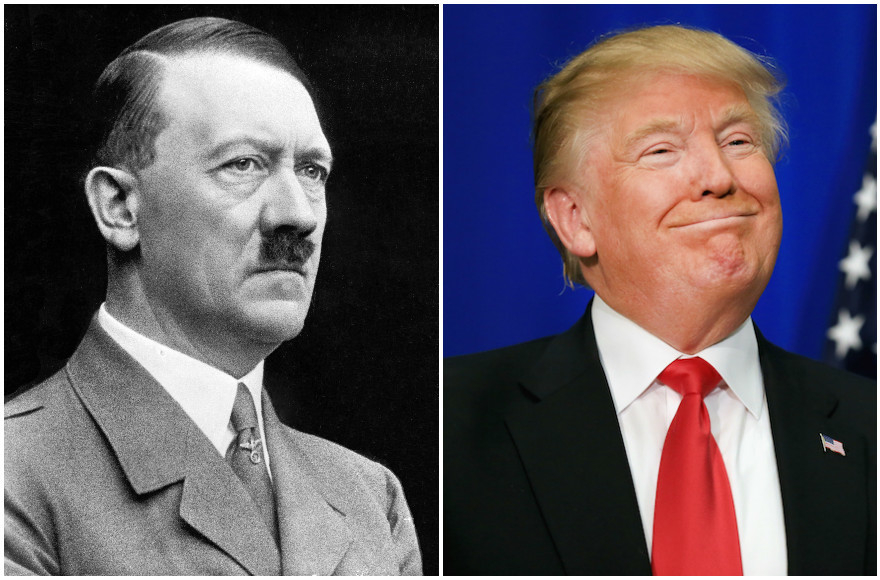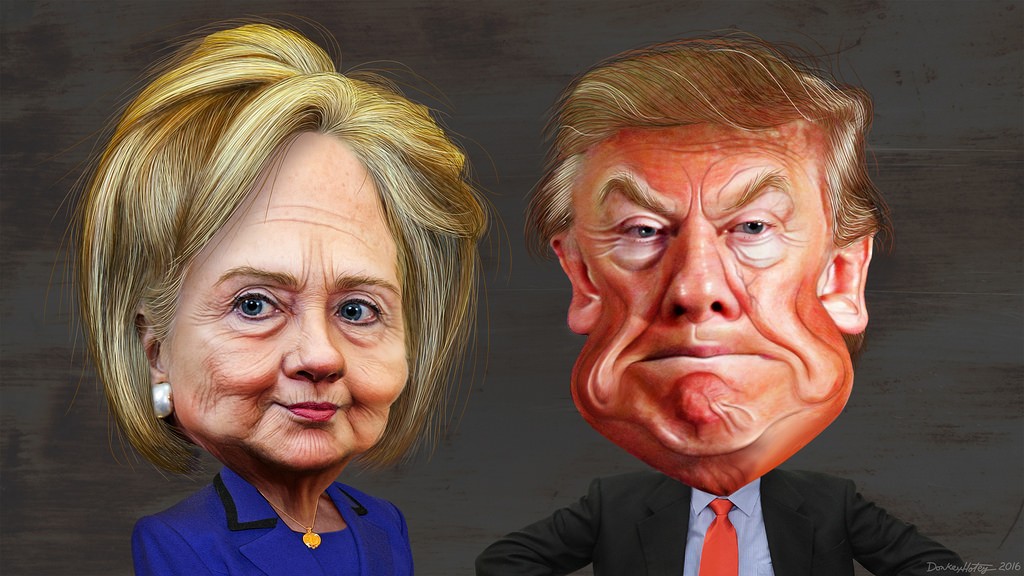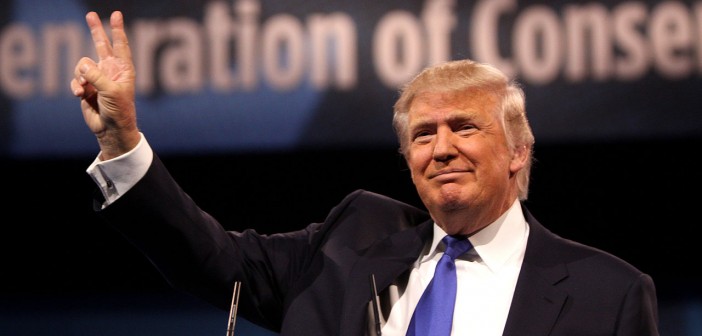Does Trump Have What It Takes? Does He Know What It Takes?
In Donald Trump´s effort to become the president of the United States, it has been brought up on several occasions the striking resemblance between the policies of Donald Trump and the Policies and ideas by one of the most notorious and discussed individuals of all time, Adolf Hitler. Antioch´s very own Marta Waldrop Bergman took a look at this comparison earlier this year.

Some people think that the comparison between Adolf Hitler and Donald Trump is a slippery slope.
One of the things people used to say about Hitler when he rose to power in the early 1930’s was that he was saying it like it is. People first thought he was a bit of a clown, with his big speeches and over-the-top showmanship, but they also admired his ability to say what everyone thought, but didn’t dare say out loud. Although most people think that comparing Trump to Hitler is a slippery slope, the ideals bare some scary resemblances.
The phrase, “Make America great again” is one Trump is not shy to shout. He´s yelling it, saying and whispering it at every presented opportunity and when he needs to lighten the mood a little. But does Trump even understand what making America great again means? Does he understand that he is possibly part of the problem?
The documentary “Requiem for the American Dream” available on Netflix. Noam Chomsky is an American linguist, philosopher, cognitive scientist, historian, logician, social critic, and political activist. How many Americans currently would agree that the American dream is in big trouble? A good percentage, recent polls suggest. That’s why Chomsky’s leftist analysis, as a starting point for discussion at the very least, could offer as much food for thought for the supporters of Donald J. Trump as it will sustenance for Bernie Sanders’ legions. Today major global leaders are the ones with business degrees, not like back in the 50´s and 60´s, when they were engineers with maybe a master in business.

Noam Chomsky and the Requiem for the American Dream
Here is Robert Ebert´s summary of the documentary. In post-World War II America, there was a direct correlation between the average worker having a job that allowed him to own a home, support a family and educate his kids, on the one hand, and, on the other, the facts that the wealthy were taxed at a high rate, businesses were engaged mainly in making products designed to sell (which their workers could afford to buy), and the power of lobbyists and corporations in Washington was relatively limited.
The 1960s changed much of that. While the civil rights, antiwar and feminist movements transformed society with an upsurge of democratic activism from ordinary citizens, the powerful, alarmed at their loss of control, reacted with fierce efforts to consolidate and extend it. The eventual consequence was a country that was like the ‘50s turned upside down: through deliberate efforts to undermine job security, the middle class was hollowed out both economically and psychologically; while less wealthy, post-WWII America was able to give free or low-cost college educations to most students, today’s graduates are shackled with huge debts that help make them passive workers; corporations now devote far less energy to making products than to making money through moving it around, and protect their powers by, in effect, buying the kind of government that helps them maintain and increase that power.
America seems to be in a “vicious cycle”—the more money that goes into politics with the intent of influencing it, the more our politics is ruled by money rather than any other definition of national welfare. The baneful effects of the Citizens United decision, which effectively removed all limits on how much money corporations can pour into elections, are noted, but the influence of advertising culture as well as the modern media, which have helped turn citizens seeking useful information to make rational decisions into passive consumers, addicted to shopping, hypnotized by their devices and increasingly prone to making irrational, emotional decisions that are actually contrary to their own interests.
Walking around the streest of Santa Barbara, whether it´s your neighbour or a stranger you randomly bump into, the subject on which the conversation usually leads to is politics. What do you think about Donald Trump? Most people laugh or shrugg when that question is brought up. The most common answer is that, ”well, at least we have Hillary. Some even go on to say that they would rather put Donald Trump in office than Hillary. “I am not voting at all or im voting for Trump, since its already pretty messed up, why not just make it as messed up as possible”, said my 47 year old neighbor.
This kind of thinking scares me a little. What i mean by that is, what has the world come to when you are left with two presidential candidates and the majority of the American people dosent seem to like either of the candidates. Which results in low voter turn out and continuous complaining. This is no way to promote change and it is becoming clearer that the American people has lost faith in the election system. Both Hillary Clinton and Donald Trump are fighting hard, maybe not 100% morally just, but they are giving it their all. Seeing an end to this is not easy, with two hard to control, spontaneous and free spirited candidates. But I do wish everyone in and The United States themselves Good Luck on the upcoming election, you are going to need it.

Hillary Diane Rodham Clinton and Donald John Trump
According to Donald Trump, the Republican presidential nominee, we are a nation besieged by wild eyed radicals. Who are bent on destroying the very fabric of America, and it wouldn’t be the first time. To read more, take a look at Simon Auckermans “Visions of 68´dance through our heads!“
Quentin Dupouy: 88 Days to the election: Whats going on?“
Check the latest presidential polls from the New York Times.




